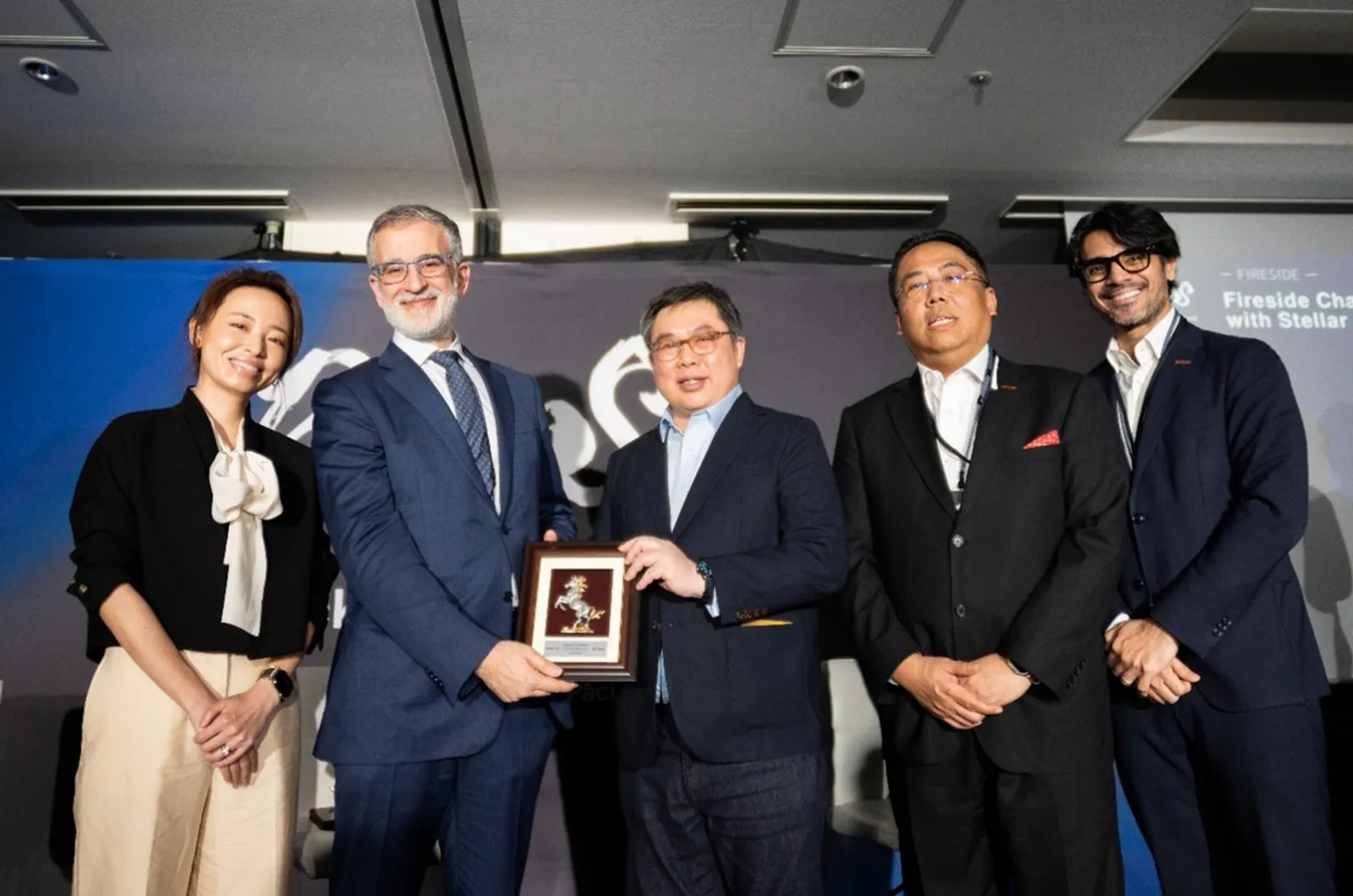The African Development Bank Group has approved a strategic $15 million equity investment in Adenia Entrepreneurial Fund 1 (AEF 1), marking a significant commitment to supporting small and medium-sized enterprises across the African continent. The Board of Directors authorized the investment during a meeting held in Abidjan on November 19, 2025, reinforcing the Bank’s dedication to fostering inclusive economic growth and strengthening the private sector ecosystem in Africa.
This investment represents a crucial step in addressing one of the most persistent challenges facing African economies: the financing gap that prevents promising small and mid-cap companies from scaling their operations and reaching their full potential. By channeling growth capital to businesses operating in sectors vital to economic resilience, the partnership between the African Development Bank and Adenia Partners aims to catalyze sustainable development while generating meaningful employment opportunities across multiple African markets.
Build the future you deserve. Get started with our top-tier Online courses: ACCA, HESI A2, ATI TEAS 7, HESI EXIT, NCLEX-RN, NCLEX-PN, and Financial Literacy. Let Serrari Ed guide your path to success. Enroll today.
Targeting Strategic Economic Sectors
The Adenia Entrepreneurial Fund 1 will focus its investments on companies operating in sectors that form the backbone of African economic development and demonstrate strong potential for sustainable growth. These strategic sectors include light industry, consumer goods and services, renewable energies, healthcare, and education—all areas identified as critical for building economic resilience and improving quality of life across the continent.
The light industry sector encompasses manufacturing activities that produce consumer goods, textiles, food processing, and other products that serve local and regional markets. By investing in these businesses, the Fund will support import substitution initiatives and help African countries build more diversified economies less dependent on commodity exports. This sector also tends to be labor-intensive, creating significant employment opportunities for local communities.
Consumer goods and services represent another priority area, reflecting the continent’s growing middle class and increasing purchasing power. As African consumers demand higher quality products and services, local companies that can meet these needs are positioned for substantial growth. The Fund’s investment in this sector will help businesses scale their operations, improve product quality, and expand their market reach across borders.
The inclusion of renewable energy as a target sector aligns with global trends toward sustainable development and Africa’s enormous potential for clean energy generation. The continent possesses abundant solar, wind, hydro, and geothermal resources that remain largely untapped. Supporting renewable energy companies will not only contribute to energy security and climate change mitigation but also address the persistent electricity access challenges that constrain economic development in many African countries.
Healthcare and education represent fundamental pillars of human capital development, and investments in these sectors generate multiplier effects throughout the economy. Quality healthcare services improve productivity by reducing disease burden and mortality rates, while educational institutions develop the skilled workforce necessary for economic transformation. Both sectors have experienced growing demand across Africa as populations expand and aspirations for better services increase.
The Majority Stake Approach
A distinguishing feature of Adenia Entrepreneurial Fund 1’s investment strategy is its focus on taking majority stakes in portfolio companies. This approach differs from many private equity funds that prefer minority positions, and it reflects a deliberate strategy to drive meaningful operational improvements and strategic transformations within invested companies.
By acquiring majority ownership, the Fund positions itself to actively participate in management decisions, implement governance reforms, and guide strategic direction. This hands-on approach enables Adenia to address the operational challenges that often prevent small and mid-cap companies from achieving their growth potential. These challenges may include weak financial management systems, inadequate corporate governance structures, limited access to technical expertise, or insufficient strategic planning capabilities.
The majority stake strategy also allows the Fund to make necessary but sometimes difficult decisions regarding management changes, operational restructuring, or strategic pivots. While minority investors may struggle to influence company direction when existing management resists change, majority ownership provides the authority needed to implement transformational improvements that create long-term value.
This approach requires significant expertise and resources, as the Fund must be prepared to actively engage with portfolio companies rather than simply providing capital and monitoring performance from a distance. Adenia’s track record of successfully managing five funds and completing investments in 34 companies demonstrates the organization’s capability to execute this demanding investment strategy effectively.
Value Creation Through Active Management
Beyond providing growth capital, Adenia Partners will work closely with portfolio companies to design comprehensive development plans that address specific growth constraints and opportunities. This value creation process begins with thorough diagnostic assessments that identify operational inefficiencies, market positioning challenges, financial management weaknesses, and strategic gaps.
Based on these assessments, Adenia collaborates with company management to develop detailed implementation plans covering areas such as operational optimization, market expansion, product development, talent acquisition, and financial restructuring. The Fund’s team brings extensive private equity experience and deep understanding of African business environments, enabling them to provide practical guidance tailored to each company’s unique circumstances.
Access to sector experts represents another critical value-add that Adenia provides to portfolio companies. The Fund maintains relationships with specialists across various industries who can advise on technical matters, market trends, regulatory developments, and best practices. For a renewable energy company, this might involve experts in solar panel technology, power purchase agreements, or grid integration. For a healthcare business, relevant experts might include medical professionals, hospital administrators, or pharmaceutical supply chain specialists.
Technical assistance programs complement strategic advice by helping companies build internal capabilities and implement specific improvements. This assistance might include support for establishing robust financial reporting systems, implementing enterprise resource planning software, developing quality management processes, strengthening human resources practices, or obtaining industry certifications. By building these capabilities, the Fund helps ensure that operational improvements become embedded in organizational routines rather than depending entirely on external support.
The combination of capital, strategic guidance, expert advice, and technical assistance creates a comprehensive value creation approach that addresses multiple dimensions of company performance simultaneously. This integrated model recognizes that financial resources alone are insufficient to transform small and mid-cap companies into regional champions—they also need knowledge, capabilities, and strategic direction.
Projected Economic and Social Impact
The African Development Bank estimates that Adenia Entrepreneurial Fund 1 will generate significant economic and social benefits across its target markets. Financial modeling suggests the Fund will contribute approximately $55.5 million in tax revenue to governments over its lifetime, providing fiscal resources that can be reinvested in public services, infrastructure, and social programs.
This tax revenue will flow from multiple sources, including corporate income taxes paid by portfolio companies, value-added taxes collected on products and services sold, payroll taxes on employee compensation, and customs duties on imports of equipment and materials. As portfolio companies grow and become more profitable, their tax contributions should increase correspondingly, creating sustainable revenue streams for governments.
Job creation represents another crucial impact dimension, with projections indicating the Fund will support the creation of 1,810 full-time equivalent positions over its operational lifetime. These jobs will span various skill levels and functions, from manufacturing workers and service delivery personnel to management professionals and technical specialists. The employment opportunities will provide income for workers and their families, contributing to poverty reduction and improved living standards.
Particularly noteworthy is the Fund’s commitment to inclusive employment, with targets indicating that 45 percent of created jobs will benefit women and 55 percent will go to young people. These demographic targets reflect recognition that women and youth face disproportionate challenges in accessing quality employment opportunities across Africa. Youth unemployment remains persistently high in many African countries, with young people comprising a large share of the unemployed despite representing the continent’s demographic dividend.
Gender disparities in employment and entrepreneurship also persist, with women encountering barriers including limited access to credit, discriminatory social norms, unequal educational opportunities, and disproportionate unpaid care responsibilities. By explicitly targeting women for employment opportunities, the Fund contributes to reducing these disparities and unlocking the economic potential of Africa’s female population.
The emphasis on job creation for youth and women aligns with broader development priorities articulated by the African Development Bank and other development institutions. The Bank’s Jobs for Youth in Africa Strategy recognizes that harnessing the continent’s youthful population requires deliberate efforts to create employment opportunities and develop skills. Similarly, gender equality represents a cross-cutting priority that underpins sustainable and inclusive development.
One decision can change your entire career. Take that step with our Online courses in ACCA, HESI A2, ATI TEAS 7, HESI EXIT, NCLEX-RN, NCLEX-PN, and Financial Literacy. Join Serrari Ed and start building your brighter future today.
Strengthening Regional Integration
Beyond country-level impacts, Adenia Entrepreneurial Fund 1 will contribute to strengthening regional integration by investing in companies with cross-border operations or aspirations. Regional integration represents a strategic priority for African development, as most individual African countries have relatively small domestic markets that limit economies of scale and constrain business growth potential.
The African Continental Free Trade Area (AfCFTA), which began implementation in 2021, creates a single continental market for goods and services with free movement of business persons and investments. This landmark agreement has the potential to significantly boost intra-African trade and investment, but realizing this potential requires companies capable of operating across multiple countries and navigating diverse regulatory environments.
By supporting companies as they expand beyond their home markets, the Fund will help build a cadre of pan-African businesses that can leverage the opportunities created by AfCFTA and other regional integration initiatives. This expansion process involves challenges including understanding different consumer preferences, complying with varying regulatory requirements, establishing distribution networks in new markets, managing multi-country operations, and building diverse management teams.
Adenia’s experience operating across multiple African countries positions it to guide portfolio companies through these challenges. The Fund’s team understands regulatory frameworks in different jurisdictions, maintains relationships with key stakeholders across the continent, and can share lessons learned from previous cross-border expansion initiatives. This knowledge and experience prove invaluable for companies attempting to scale regionally for the first time.
Regional expansion also promotes knowledge transfer and best practice dissemination across African markets. When successful business models proven in one country are adapted and implemented in other markets, the benefits of innovation spread more rapidly across the continent. This diffusion effect accelerates overall economic development by reducing the time required for good ideas to reach multiple markets.
The Role of Development Finance Institutions
The African Development Bank’s investment in Adenia Entrepreneurial Fund 1 exemplifies the catalytic role that development finance institutions (DFIs) can play in mobilizing private capital for development priorities. DFIs like the African Development Bank occupy a unique position in the development finance ecosystem, combining patient capital, higher risk tolerance, and development impact orientation with rigorous financial analysis and investment discipline.
By co-investing alongside private investors in funds like AEF 1, the African Development Bank provides a stamp of credibility that can attract additional private sector capital. Private equity investors often view DFI participation as a positive signal indicating that investments have been subject to thorough due diligence, governance standards meet international norms, and exit prospects are reasonable. This demonstration effect helps mobilize private capital that might otherwise remain on the sidelines due to perceived risks.
DFI participation can also help improve fund governance and impact measurement practices. Development finance institutions typically require robust environmental, social, and governance (ESG) frameworks, comprehensive impact reporting, and adherence to international standards such as the International Finance Corporation’s Performance Standards. These requirements elevate industry practices and ensure that private equity investments contribute to sustainable development rather than merely extracting financial returns.
The African Development Bank’s Industrial and Trade Development Department, which oversees this investment, focuses specifically on supporting private sector development and strengthening African industrial capacity. As Ousmane Fall, the acting director of the department, explained, targeting small to mid-cap companies facilitates inclusive growth by improving access to finance for underserved businesses and promoting sustainable job creation.
About Adenia Partners
Adenia Partners Ltd, the manager of Adenia Entrepreneurial Fund 1, brings substantial experience in African private equity investing spanning more than two decades. Founded in 2002, the firm has established itself as a leading pan-African private equity platform with a consistent focus on responsible investment practices and sustainable development outcomes.
Over its operating history, Adenia has successfully raised more than $900 million from a diverse base of investors including private investors, institutional investors, and development finance institutions. This fundraising track record demonstrates confidence in the firm’s investment strategy, execution capabilities, and ability to generate attractive risk-adjusted returns while creating development impact.
The firm has managed five funds to date, three of which have been fully liquidated, providing actual realized returns data rather than merely unrealized valuations. This performance history offers prospective investors concrete evidence of Adenia’s ability to identify promising investments, add value through active ownership, and exit positions successfully. The firm has made investments in 34 companies across various sectors and countries, accumulating extensive deal experience and sector expertise.
Adenia has completed 20 exits from portfolio investments, demonstrating its ability to create value and realize returns through various exit routes including trade sales, secondary sales to other private equity firms, and management buyouts. Exit capability represents a critical dimension of private equity success, as even well-performing portfolio companies only generate returns for investors when positions are successfully monetized.
The firm’s commitment to responsible investment aligns with growing recognition that sustainable business practices drive long-term value creation. Environmental sustainability, social responsibility, and strong governance are no longer viewed merely as ethical considerations but as fundamental components of sound business management that reduce risks and enhance performance. Adenia’s focus on these factors positions portfolio companies to meet evolving customer expectations, comply with tightening regulations, and access international markets with stringent sustainability requirements.
Addressing Africa’s Financing Gap
The investment by the African Development Bank in Adenia Entrepreneurial Fund 1 directly addresses one of the most significant constraints on African economic development: the financing gap facing small and medium-sized enterprises. While large corporations can access capital through public markets, bank loans, or international investors, and microenterprises can obtain funding from microfinance institutions, businesses in the middle often struggle to secure growth capital.
This “missing middle” phenomenon reflects several factors, including the higher due diligence costs associated with evaluating mid-sized companies, perceived risks related to corporate governance and financial reporting quality, limited exit options in less developed capital markets, and insufficient local currency financing options. Commercial banks often view these companies as too risky for traditional lending, while international investors may consider them too small to warrant attention.
Private equity funds like AEF 1 help fill this gap by providing patient capital specifically designed for growth-stage companies that need more than debt financing but are not yet ready for public markets. The typical investment sizes, holding periods, and active management approaches employed by private equity align well with the needs of small and mid-cap companies seeking to scale operations, professionalize management, and expand markets.
The multiplier effects of addressing this financing gap extend throughout the economy. Small and mid-cap companies serve as key engines of job creation, innovation, and economic diversification. When these businesses receive the capital and support needed to grow, they create employment opportunities, develop new products and services, build supply chains that benefit smaller enterprises, and contribute to more competitive and dynamic economies.
Broader Trends in African Private Equity
The African Development Bank’s investment in Adenia Entrepreneurial Fund 1 aligns with broader trends in African private equity, where deal activity and capital deployment have grown substantially over the past decade. According to industry data, private equity fundraising for Africa-focused funds has increased significantly, reflecting growing investor confidence in African markets and recognition of attractive return opportunities.
Several factors drive this trend, including Africa’s favorable demographics with a young and growing population, rapid urbanization creating larger consumer markets, ongoing economic reforms improving business environments, expanding middle classes with rising purchasing power, and increasing adoption of technology enabling new business models. These structural tailwinds create opportunities for well-managed companies to achieve rapid growth and attractive returns.
However, African private equity also faces persistent challenges including currency volatility, regulatory uncertainty, limited exit options in many markets, governance risks, and political instability in some countries. Successful private equity investing in Africa requires deep local knowledge, patient capital, active value creation approaches, and realistic expectations about holding periods and exit routes.
The presence of experienced fund managers like Adenia, supported by development finance institutions like the African Development Bank, helps build the ecosystem infrastructure necessary for private equity to flourish. As more success stories emerge and the industry matures, African private equity should continue attracting capital and playing an increasingly important role in financing business growth across the continent.
Looking Forward
As Adenia Entrepreneurial Fund 1 begins deploying its capital, including the $15 million investment from the African Development Bank, attention will focus on identifying suitable portfolio companies and executing investments that can deliver both financial returns and development impact. The Fund’s investment criteria, sector focus, and value creation approach will guide this process as the management team evaluates opportunities across target markets.
The success of AEF 1 will be measured not only by financial metrics like internal rates of return and multiples on invested capital but also by its development outcomes including jobs created, tax revenues generated, women and youth employed, and contribution to regional integration. This dual focus on financial and impact performance reflects the Fund’s positioning as a responsible investment vehicle aligned with development priorities.
The partnership between the African Development Bank and Adenia Partners demonstrates how development finance institutions and private sector fund managers can collaborate to mobilize capital, support business growth, and advance inclusive development across Africa. As the Fund progresses, lessons learned from its investments will inform future initiatives and contribute to strengthening Africa’s private equity ecosystem.
For small and mid-cap companies across Africa operating in sectors like light industry, consumer goods, renewable energy, healthcare, and education, Adenia Entrepreneurial Fund 1 represents a potential source of growth capital coupled with strategic support and technical assistance. The Fund’s active ownership approach and focus on operational improvements offer these businesses more than just financing—it provides partnership with experienced investors committed to building successful, sustainable companies that create value for all stakeholders.
The African Development Bank’s commitment to supporting private sector development through instruments like equity investments in private equity funds reflects broader recognition that sustainable development requires vibrant business sectors capable of creating jobs, generating tax revenues, and driving innovation. As AEF 1 deploys capital and works with portfolio companies over the coming years, it will contribute to this vision while demonstrating the potential of responsible private equity to advance development objectives across the African continent.
Ready to take your career to the next level? Join our Online courses: ACCA, HESI A2, ATI TEAS 7 , HESI EXIT , NCLEX – RN and NCLEX – PN, Financial Literacy!🌟 Dive into a world of opportunities and empower yourself for success. Explore more at Serrari Ed and start your exciting journey today! ✨
Track GDP, Inflation and Central Bank rates for top African markets with Serrari’s comparator tool.
See today’s Treasury bonds and Money market funds movement across financial service providers in Kenya, using Serrari’s comparator tools.
photo source: Google
By: Montel Kamau
Serrari Financial Analyst
25th November, 2025
Article, Financial and News Disclaimer
The Value of a Financial Advisor
While this article offers valuable insights, it is essential to recognize that personal finance can be highly complex and unique to each individual. A financial advisor provides professional expertise and personalized guidance to help you make well-informed decisions tailored to your specific circumstances and goals.
Beyond offering knowledge, a financial advisor serves as a trusted partner to help you stay disciplined, avoid common pitfalls, and remain focused on your long-term objectives. Their perspective and experience can complement your own efforts, enhancing your financial well-being and ensuring a more confident approach to managing your finances.
Disclaimer: This article is for informational purposes only and does not constitute financial advice. Readers are encouraged to consult a licensed financial advisor to obtain guidance specific to their financial situation.
Article and News Disclaimer
The information provided on www.serrarigroup.com is for general informational purposes only. While we strive to keep the information up to date and accurate, we make no representations or warranties of any kind, express or implied, about the completeness, accuracy, reliability, suitability, or availability with respect to the website or the information, products, services, or related graphics contained on the website for any purpose. Any reliance you place on such information is therefore strictly at your own risk.
www.serrarigroup.com is not responsible for any errors or omissions, or for the results obtained from the use of this information. All information on the website is provided on an as-is basis, with no guarantee of completeness, accuracy, timeliness, or of the results obtained from the use of this information, and without warranty of any kind, express or implied, including but not limited to warranties of performance, merchantability, and fitness for a particular purpose.
In no event will www.serrarigroup.com be liable to you or anyone else for any decision made or action taken in reliance on the information provided on the website or for any consequential, special, or similar damages, even if advised of the possibility of such damages.
The articles, news, and information presented on www.serrarigroup.com reflect the opinions of the respective authors and contributors and do not necessarily represent the views of the website or its management. Any views or opinions expressed are solely those of the individual authors and do not represent the website's views or opinions as a whole.
The content on www.serrarigroup.com may include links to external websites, which are provided for convenience and informational purposes only. We have no control over the nature, content, and availability of those sites. The inclusion of any links does not necessarily imply a recommendation or endorsement of the views expressed within them.
Every effort is made to keep the website up and running smoothly. However, www.serrarigroup.com takes no responsibility for, and will not be liable for, the website being temporarily unavailable due to technical issues beyond our control.
Please note that laws, regulations, and information can change rapidly, and we advise you to conduct further research and seek professional advice when necessary.
By using www.serrarigroup.com, you agree to this disclaimer and its terms. If you do not agree with this disclaimer, please do not use the website.
www.serrarigroup.com, reserves the right to update, modify, or remove any part of this disclaimer without prior notice. It is your responsibility to review this disclaimer periodically for changes.
Serrari Group 2025
















